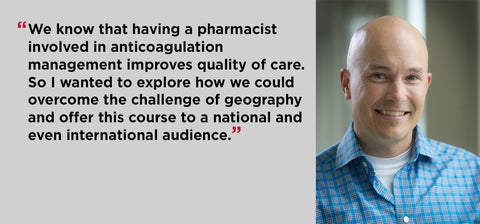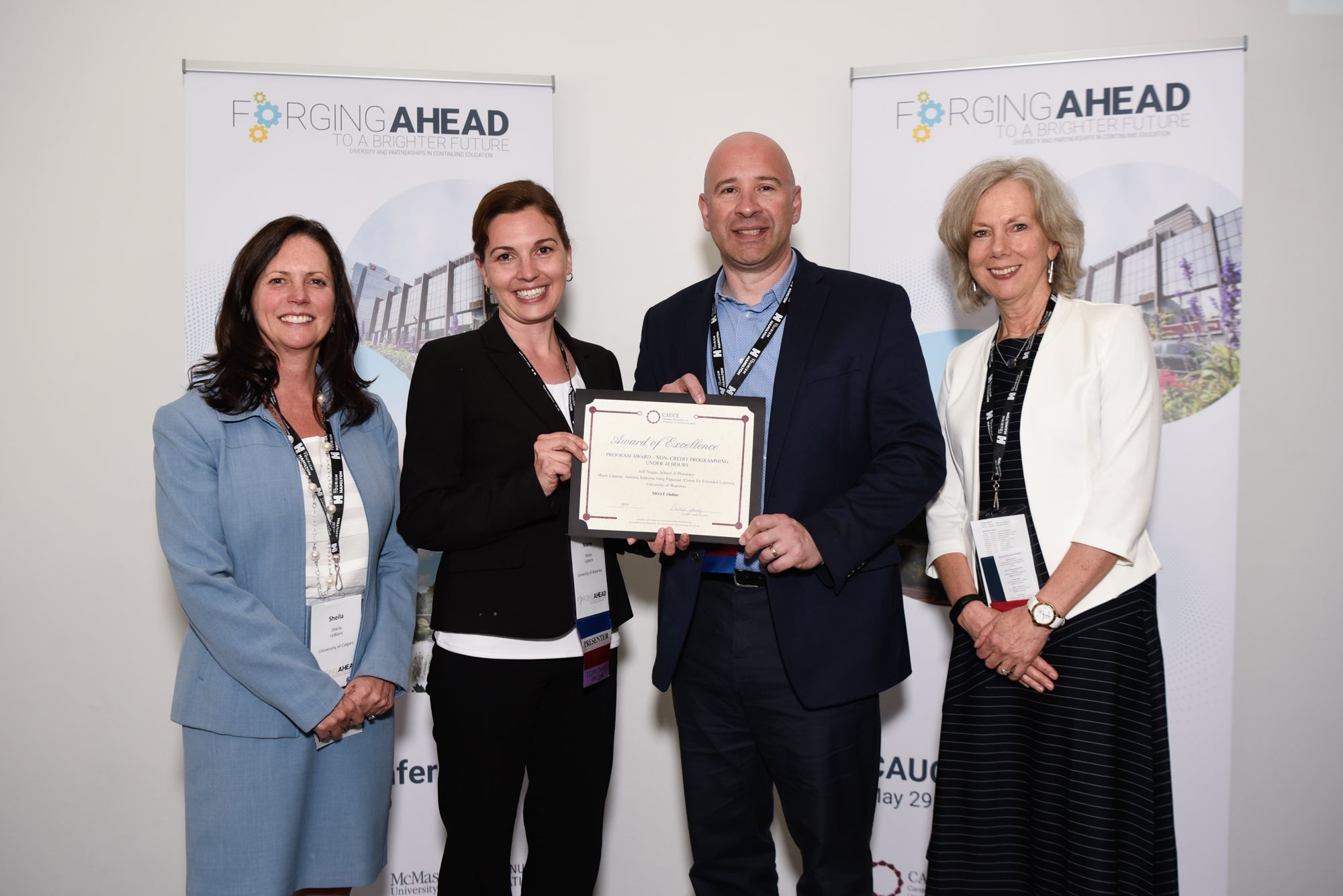
Continuing education course using artificial intelligence receives education award
A course created by a professor from University of Waterloo School of Pharmacy and the Centre for Extended Learning (CEL) was recognized by the national association for university continuing education. Entitled Management of Oral Anticoagulation Therapy – Online (MOAT Online), the course received the Non-credit Programming under 48 hours award at the annual conference of the Canadian Association for University Continuing Education (CAUCE).
Authored by Prof. Jeff Nagge of the School of Pharmacy, the course teaches pharmacists, registered nurses, and nurse practitioners how to effectively and safely manage oral anticoagulation therapy under a medical directive. Oral anticoagulants, such as warfarin, are complex medications that require patients to undergo regular blood tests.
The results of these tests are used to determine if the patient is taking an appropriate dose or if the dose needs adjustment. This content is not typically covered in undergraduate pharmacy curricula. Thus, in 2008 Jeff Nagge created a blended learning course on the subject. Students completed an online module and then attended in-person clinic days where they advised patients on oral anticoagulants and received feedback from Nagge.
Students consistently rated the interactive clinic days as the most valuable part of the blended course. However, geography limited who could enrol, as physical presence in the clinics was necessary.
We know that having a pharmacist involved in anticoagulation management improves patient satisfaction and quality of care. So I wanted to explore how we could overcome the challenge of geography and offer this course to a national and even international audience.
Artificial intelligence provided the solution. Working with partner Ametros Learning, the team developed a roster of simulated patients that learners can interact with. A pharmacist with extensive experience in anticoagulation counselling, Prof. Nagge provided the expertise to create 60-70 unique patient interactions. Using artificial intelligence and natural language processing, the simulated patients respond to typed inputs from students in the course, sharing information, and even acting out more complex clinical scenarios.
The simulated patients have unique, sometimes complex, medical histories and individualized personality traits and language use patterns. They must be trained to respond appropriately to a long list of questions students might ask and to understand the various ways the same question could be phrased.
“Making this work required an enormous amount of time and energy from Jeff and the Ametros team,” says Marie Lippens, Online Learning Consultant at the Centre for Extended Learning. “The process was iterative, and we learned a lot about AI and the development process as we tested and improved the sims. Ametros went above and beyond to create us a custom dashboard for the experience that could facilitate delivery of crucial feedback to students from Jeff as they work through the sims. The dedication of the entire team is what made this course a success. Student feedback has been very positive, which is encouraging. We look forward to further investigation of this mode of learning.
The first fully online offering using patient sims rather than in-person clinic visits ran in February 2018, and student feedback since then has been very positive. As the simulation receives more inputs from students, it also grows more robust, furthering its ability to provide realistic patient interactions for learners. Students assess the simulated patient roster over the course of six to ten visits, provide therapy recommendations, and answer questions. Prof. Nagge also reviews the interactions and provides learners with personalized feedback.
The novel use of artificial intelligence made the course a standout example of how technology can foster learning and a fitting recipient of a CAUCE program award.

Photo credit: Left to right: Dr. Sheila LeBlanc (Director, Continuing Education, University of Calgary), Marie Lippens (Online Learning Consultant, Centre for Extended Learning, University of Waterloo), Aldo Caputo (Director, Centre for Extended Learning, University of Waterloo), Carolyn Young (Director, Continuing Stues at Western, Western University)